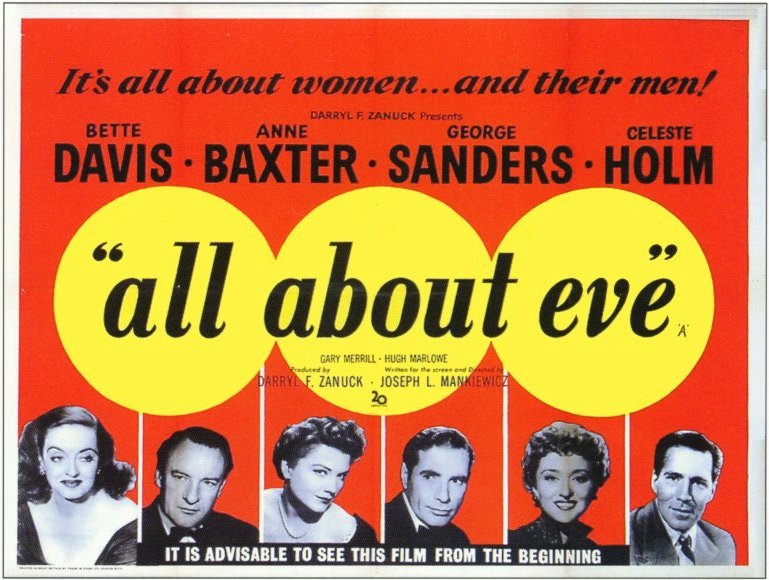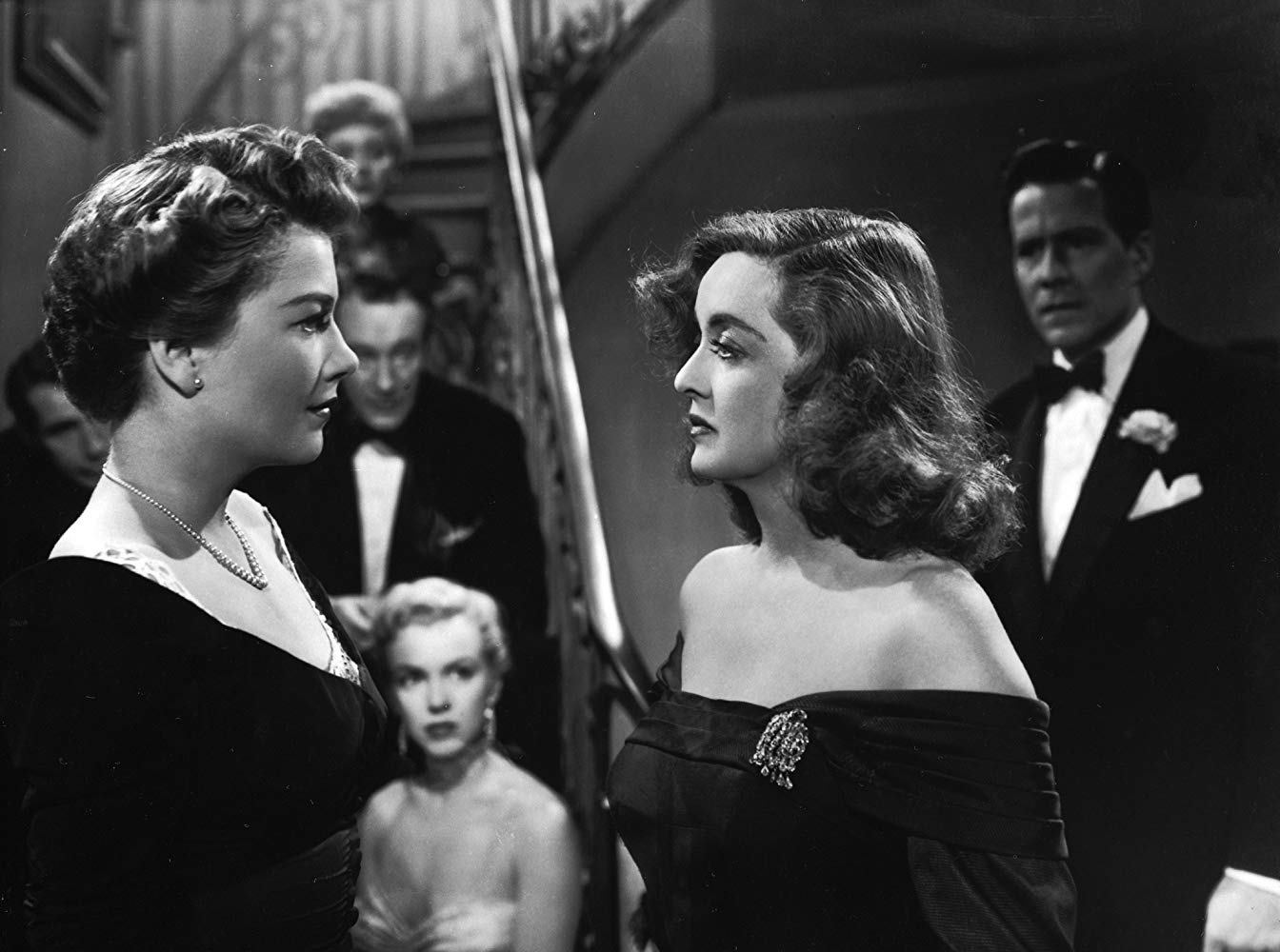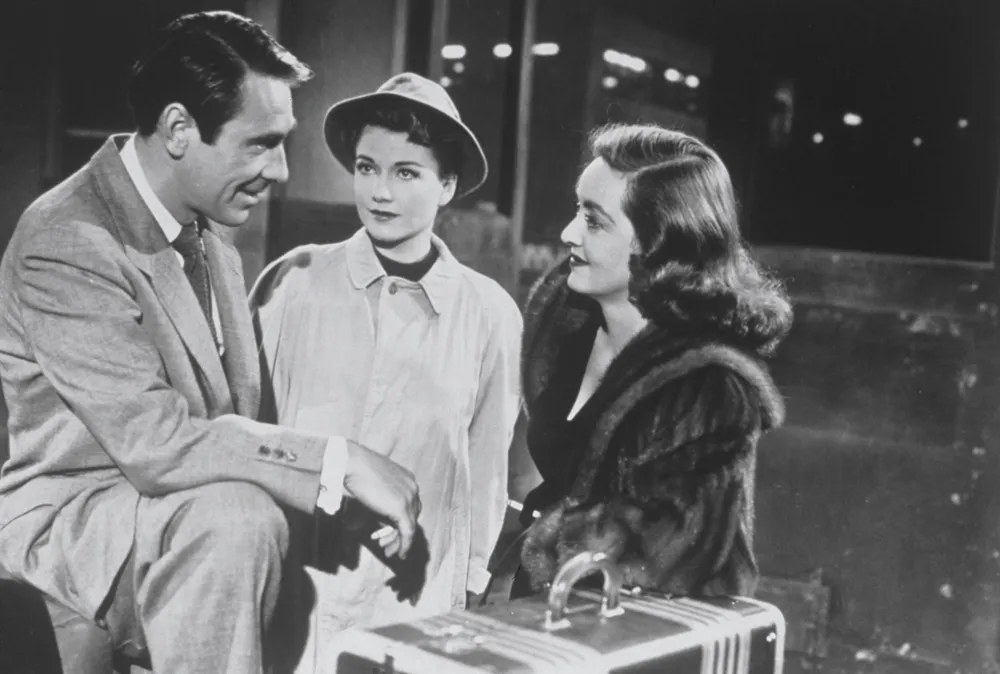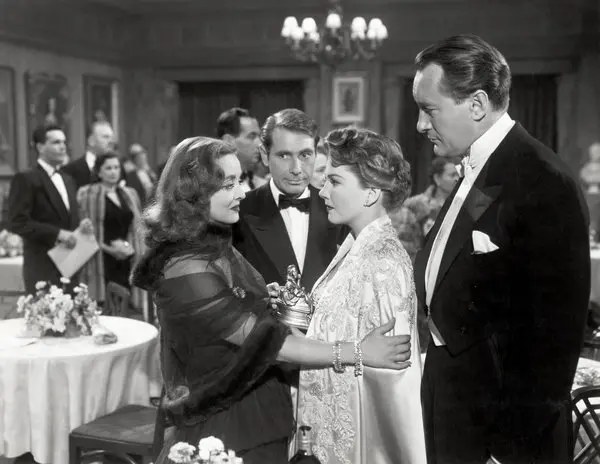All About Eve (1950)

All About Eve (1950), directed and written by Joseph L. Mankiewicz, is a classic American drama that explores the intricacies of fame, ambition, and betrayal in the world of theater. Based on Mary Orr’s short story The Wisdom of Eve, the film portrays the rivalry between Margo Channing, an aging Broadway star, and Eve Harrington, an ambitious young woman who will go to any lengths to replace her. Through its sharp dialogue, compelling characters, and exploration of human nature, All About Eve has earned its place as one of the greatest films in cinematic history.
The plot centers on Margo Channing, a seasoned and celebrated Broadway actress, played by Bette Davis. Margo is at the peak of her career, but as she grows older, she faces the anxiety of being replaced by younger, more attractive women in an industry that often values youth and beauty over talent. Her life takes a turn when she meets Eve Harrington (played by Anne Baxter), a seemingly devoted fan who appears to admire Margo’s work. However, Eve’s admiration soon morphs into a calculated desire to usurp Margo’s position as the leading lady.
The film delves deeply into the theme of ambition and its consequences. Eve’s character is driven by a ruthless determination to climb the social ladder, even if it means exploiting others. As she ingratiates herself into Margo’s life, Eve manipulates everyone around her, including Margo’s friends, colleagues, and even Margo’s lover, Bill Sampson (played by Gary Merrill). Eve’s gradual rise to fame reflects the darker side of ambition, where personal relationships are sacrificed in the pursuit of success. Her actions serve as a commentary on the lengths some individuals are willing to go to achieve their goals, no matter the cost.
Margo’s character, portrayed masterfully by Bette Davis, provides a sharp contrast to Eve. While Margo is experienced and accomplished, she is also insecure and fearful of losing her status in an industry that values youth. Davis’s performance is a tour de force, capturing the vulnerability, strength, and complexity of a woman coming to terms with the passage of time and the fragility of her career. Margo’s jealousy and mistrust of Eve highlight the struggles of women in a patriarchal society that prizes beauty and youth, often sidelining experience and wisdom.

Another key aspect of All About Eve is its exploration of friendship and betrayal. Margo’s closest confidant is her long-time friend, playwright Lloyd Richards (played by Hugh Marlowe), and his wife, Karen (played by Celeste Holm). Both characters are aware of Eve’s manipulative nature but struggle with how to address it. Karen, in particular, represents the voice of reason, trying to protect Margo from Eve’s deceitful actions. However, her failure to act quickly enough leads to the eventual unraveling of Margo’s career, showing how even those who are close to us can sometimes be complicit in our downfall.

The film’s dialogue is one of its most iconic features, with sharp, witty lines that reveal the characters’ true intentions and motivations. Mankiewicz’s script is filled with clever wordplay, and much of the film’s power comes from the verbal confrontations between Margo and Eve, as well as the behind-the-scenes manipulations that unfold. The film’s tagline, “Fasten your seatbelts, it’s going to be a bumpy night,” is a perfect reflection of the film’s tone and themes, hinting at the tension and drama that will follow as the characters navigate their turbulent relationships.

In conclusion, All About Eve is a brilliant exploration of ambition, jealousy, and the price of fame. Through its captivating characters, especially the performances of Bette Davis and Anne Baxter, the film offers a timeless commentary on the complexities of human nature and the theater world. With its clever dialogue, intricate plotting, and sharp insights into the personal and professional lives of its characters, All About Eve remains an enduring classic in American cinema. It is a story about the cost of ambition and the sacrifices individuals are willing to make to secure their place in the spotlight, making it as relevant today as it was in 1950.











